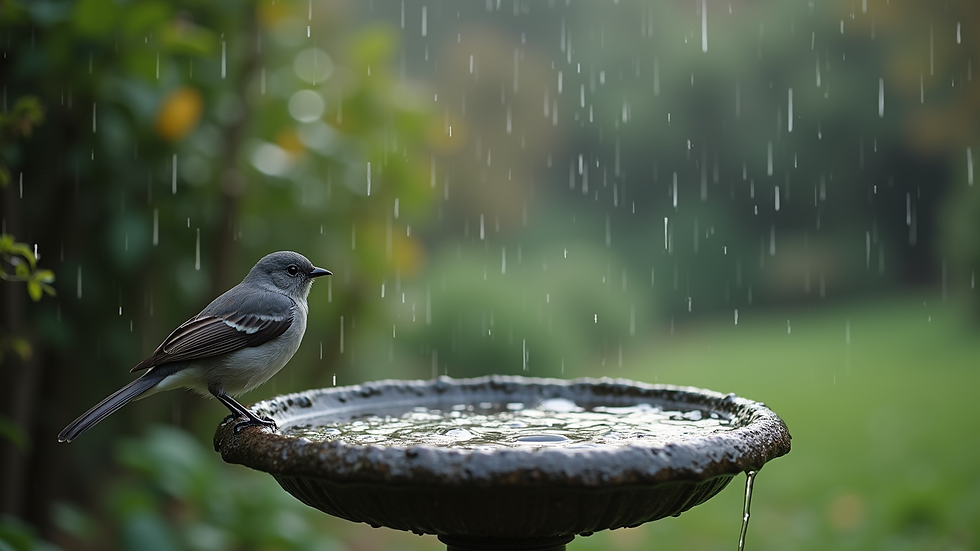How Does the Weather Really Change Mosquito Buzzing Around Your Yard
- Jul 26, 2025
- 3 min read
Ever step outside and feel like you've wandered straight into a mosquito convention? Some days, your yard feels like a serene escape, while on others, it's a full-on buzzing battlefield. So, what’s the deal? The weather plays a crucial role in mosquito activity. Here’s a look at how different weather conditions affect these pesky little insects.
Warm Weather = High Activity
When temperatures rise above 50°F, mosquitoes come out to party. But the real action begins when it hits that sweet spot of 80°F or higher. At these temperatures, mosquitoes don’t just emerge; they multiply at an alarming rate. It’s like a summer carnival for them!
They thrive in the warmer climate, and if you’ve noticed an uptick in buzzing and bites during those warm months, now you know why. As it gets hotter, their metabolism speeds up, meaning they find food more quickly and reproduce more frequently.
Rain = Mosquito Breeding Boom
Ah, rain. While it can be refreshing for us, it’s basically an all-you-can-eat buffet for mosquitoes. Rainwater collects in all sorts of nooks and crannies—the birdbath, gutters, and even those little pots you have on your patio. These stagnant water sources become prime breeding grounds.
After a heavy rainfall, you might see a significant surge in mosquito populations. They lay their eggs in these water sources, and in no time, you’ll notice a buzzing frenzy in your yard. So, the next time the skies open up, prepare yourself; a mosquito boom might be right around the corner!

Dry Spells = Temporary Relief
But what about those hot, dry spells? Surprisingly, these can lead to temporary relief from your usual mosquito woes. Some species have a survival tactic: they go dormant during droughts. This means they might be nowhere to be found.
However, not all mosquitoes are affected the same way. Some can still thrive in areas that have irrigation or trapped moisture. So, even when the weather is dry, if you have wet spots in your garden, you could still get bitten.
Wind = Natural Repellent
On windy days, you might notice fewer mosquitoes buzzing around. That's because they are weak fliers. Wind can act like a natural repellent. When the breeze picks up, it makes it difficult for these little pests to navigate through the air.
Conversely, calm weather makes it easier for mosquitoes to find you and take their unwanted bites. So if you're planning a day outside, a little wind can be your best friend.

Monitoring Weather Patterns
Understanding how weather affects mosquito activity can help you better prepare for the warmer months and increase outdoor enjoyment. Many pest control services closely monitor weather patterns, adapting their strategies based on these changes.
This adaptability is crucial when it comes to keeping your yard bite-free. If you know a storm is on the way, it may be a good time to take some preventative measures. That's why awareness of the weather can make a real difference in how much you enjoy your outdoor space.
Conclusion
Weather plays a fundamental role in the annoyance of mosquitoes in your yard. Warm temperatures boost their activity, while rain provides a breeding ground. While dry seasons offer temporary respite, wind can act as a natural barrier against them.
By staying informed and understanding how these conditions impact mosquito behavior, you can take proactive steps to minimize their presence in your own outdoor oasis. So the next time you step out into the great outdoors, consider checking the weather first—your arms and legs will thank you!




Comments